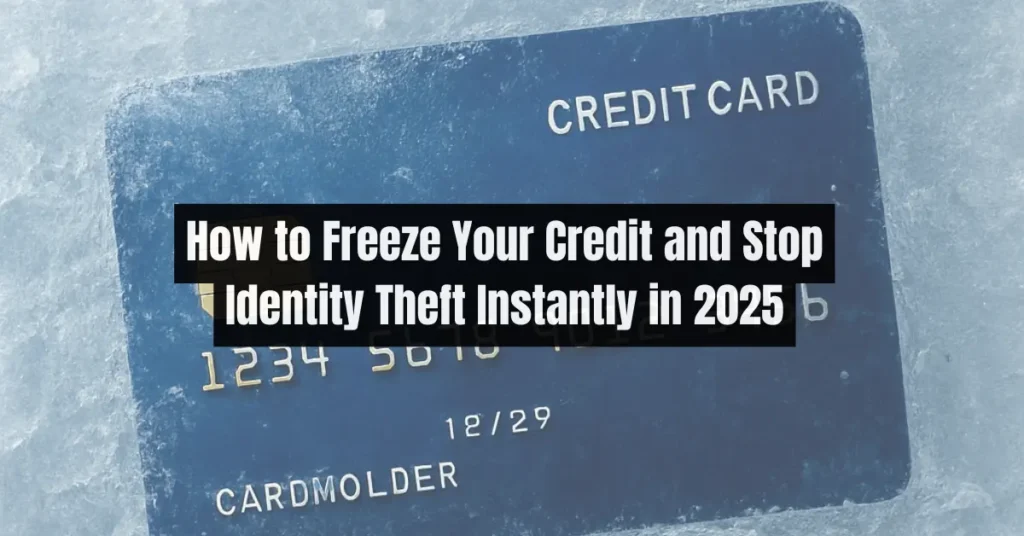📊 What Is a Good Credit Score in 2025? The Truth Banks Won’t Tell You
If you’ve ever tried to apply for a loan, credit card, or even a rental apartment, you’ve likely been asked: what’s your credit score? But what is a good credit score, exactly? And how does it affect your daily life, interest rates, and approval chances?
In this updated guide for 2025, we’ll explain everything you need to know—from how credit scores are calculated to what ranges are considered excellent, good, fair, or bad. We’ll also share powerful tips to raise your score fast and safely.
✅ What Is a Credit Score?
A credit score is a three-digit number that represents your creditworthiness. It tells lenders how likely you are to repay money you borrow. The score is calculated based on your credit history, including your payment behaviour, amounts owed, and types of credit used.
In most countries (especially the U.S., UK, Canada, and India), credit scores are calculated by independent credit bureaus.
The two most popular models are:
- FICO Score (used by 90% of top U.S. lenders)
- VantageScore (used for free credit checks and alternate lenders)
Both use a range from 300 to 850, where higher numbers mean better creditworthiness.
📈 What Is Considered a Good Credit Score?
| Credit Score Range | Rating | Meaning |
|---|---|---|
| 800 – 850 | Excellent | You’ll get the best rates and highest approval chances |
| 740 – 799 | Very Good | Lower interest rates and strong approval chances |
| 670 – 739 | Good | Accepted by most lenders with decent terms |
| 580 – 669 | Fair | Higher interest rates; borderline for some approvals |
| 300 – 579 | Poor | Low approval chances, high rates, might need a cosigner |
✅ A good credit score is generally 670 or above, according to FICO and most banks.
🌍 How Credit Score Ranges Differ by Country
🇺🇸 United States (FICO)
- Good score = 670+
- Excellent = 800+
- Lenders typically use FICO for mortgages, auto loans, and credit cards
🇨🇦 Canada
- Score ranges = 300 to 900
- Good credit = 660+
- Used by Equifax and TransUnion Canada
🇬🇧 United Kingdom
- Credit score range differs by agency (Experian: 0–999, Equifax: 0–1000)
- Good score (Experian) = 881+
- Each bureau uses its own model
🇮🇳 India
- CIBIL Score range = 300 to 900
- Good score = 750+
- Used for personal loans, home loans, and credit cards
💡 Why a Good Credit Score Matters
Having a good credit score gives you more financial freedom and less financial stress. Here’s how:
1. Lower Interest Rates
Better scores = lower risk = lower interest rates. For example:
- Home loan @ 6.5% (good score) vs 8.2% (fair score)
- On a ₹50 lakh loan, that’s ₹13,000+ monthly difference
2. Easier Loan & Credit Card Approvals
Lenders often auto-reject poor scores. A good score opens access to:
- Credit cards with rewards
- Instant personal loans
- Auto and student loans
3. Higher Credit Limits
Lenders trust high scorers with more money.
4. Lower Insurance Premiums
In some countries (e.g., U.S.), credit scores also affect auto/home insurance rates.
5. Better Job & Rental Opportunities
Many employers and landlords now do soft credit checks.
🧮 How Is Your Credit Score Calculated?
Credit scores are based on five main factors:
| Factor | Weight (%) | What It Means |
|---|---|---|
| Payment History | 35% | Have you paid bills on time? |
| Credit Utilisation Ratio | 30% | How much of your available credit are you using? (<30% is ideal) |
| Length of Credit History | 15% | Older credit accounts help build your score |
| Credit Mix | 10% | A mix of cards, loans, mortgages is good |
| New Credit Inquiries | 10% | Multiple recent applications may lower your score temporarily |
🚨 What Hurts Your Credit Score?
Avoid these mistakes:
- Missing due dates
- Maxing out credit cards
- Closing old accounts suddenly
- Too many hard inquiries
- Defaulting on loans
Each of these negatively impacts your score.
🛠️ How to Improve Your Credit Score (Fast + Safe)
Improving your score takes a bit of time—but small consistent actions create long-term results. Here’s how:
1. Pay Your Bills On Time
Set auto-reminders or enable auto-pay. Even one missed payment can drop your score by 60–100 points.
2. Reduce Credit Card Usage
Keep usage below 30% of your credit limit. If your card has ₹1,00,000 limit, use max ₹30,000.
3. Don’t Close Old Cards
Old credit cards build the age of your credit—which improves your score.
4. Don’t Apply for Too Many Loans
Each new application triggers a hard inquiry which can lower your score temporarily.
5. Check Your Credit Report
Look for errors—wrong balances, missed payments, fraudulent accounts. Report immediately to the bureau.
6. Use a Secured Credit Card
If your score is low, get a secured card to rebuild. Use lightly and pay off monthly.
🔁 How Often Does Your Credit Score Change?
Credit scores are updated monthly, based on your activity:
- Payments made or missed
- Changes in balances
- New accounts opened or closed
- Loan repayments
So even small positive changes (e.g., paying off a bill) can improve your score within 30 days.
📄 Where to Check Your Credit Score (Free)
Here are legit sources to check your score without affecting it:
United States
- AnnualCreditReport.com – Free report from all 3 bureaus
- Credit Karma – Free score and monitoring
India
UK & Canada
Most of these platforms offer tips to improve your score too.
🧠 Frequently Asked Questions (FAQs)
Q1: What is the best credit score?
A: 850 (FICO) is the highest score—but anything over 800 is considered excellent.
Q2: Can I get a loan with 600 score?
A: Possibly, but with higher interest and fewer options. Aim for 670+ for better terms.
Q3: Does checking my credit score lower it?
A: No. Soft checks (by you) don’t affect your score. Only lender “hard pulls” do.
Q4: How fast can I improve my score?
A: With consistent effort—like clearing bills, reducing credit usage—you can gain 50–100+ points in 3–6 months.
🎯 Final Thoughts: Why a Good Credit Score Is Your Financial Superpower
Now that you know what a good credit score is, it’s time to take action. Whether you’re planning a big loan, applying for your dream job, or just want to enjoy lower interest rates—your score opens doors.
A score above 670 is good. Over 740 is very good. Beyond 800? You’re elite.
So build good habits now—because a better credit score means a better financial future.

